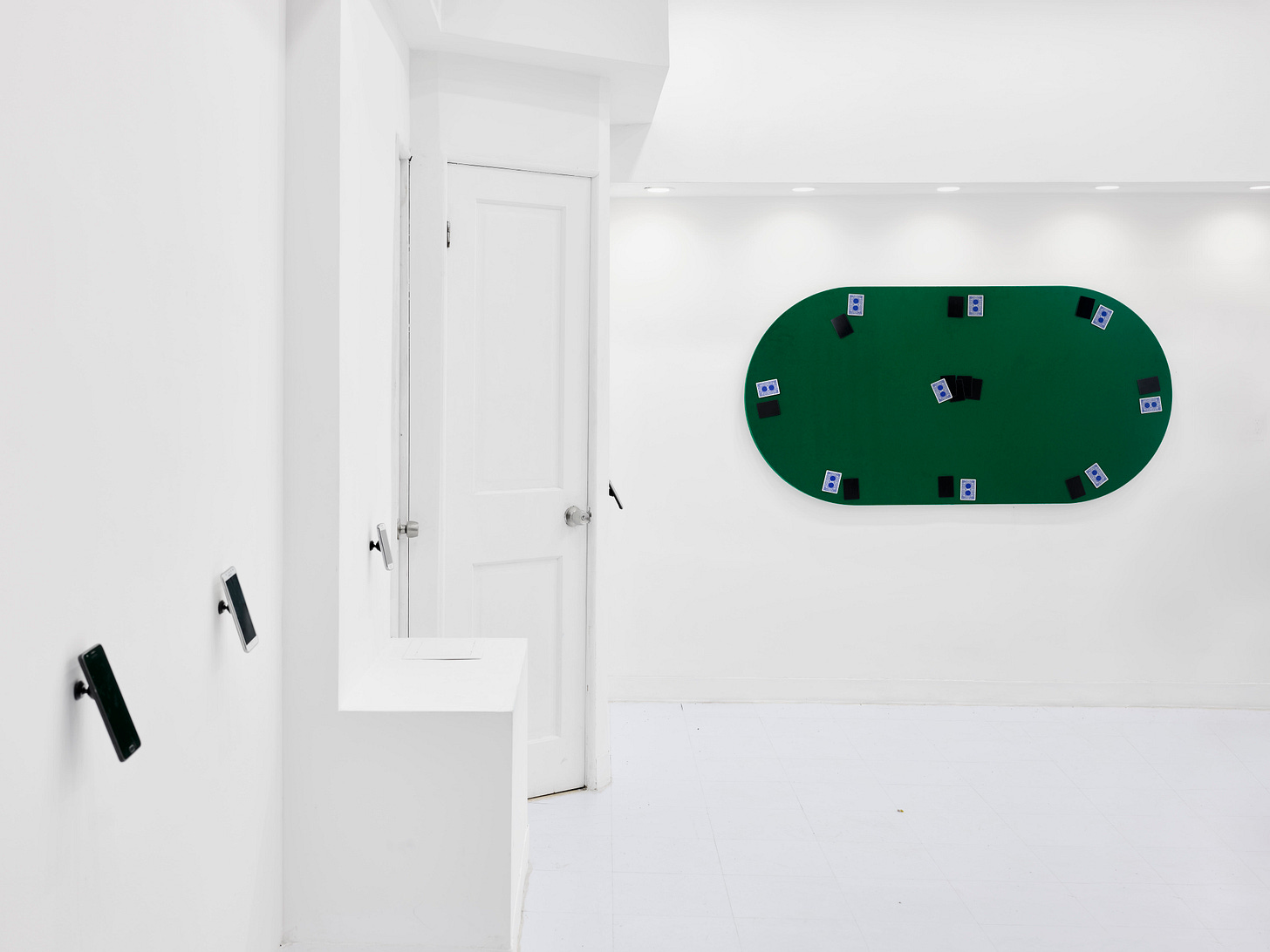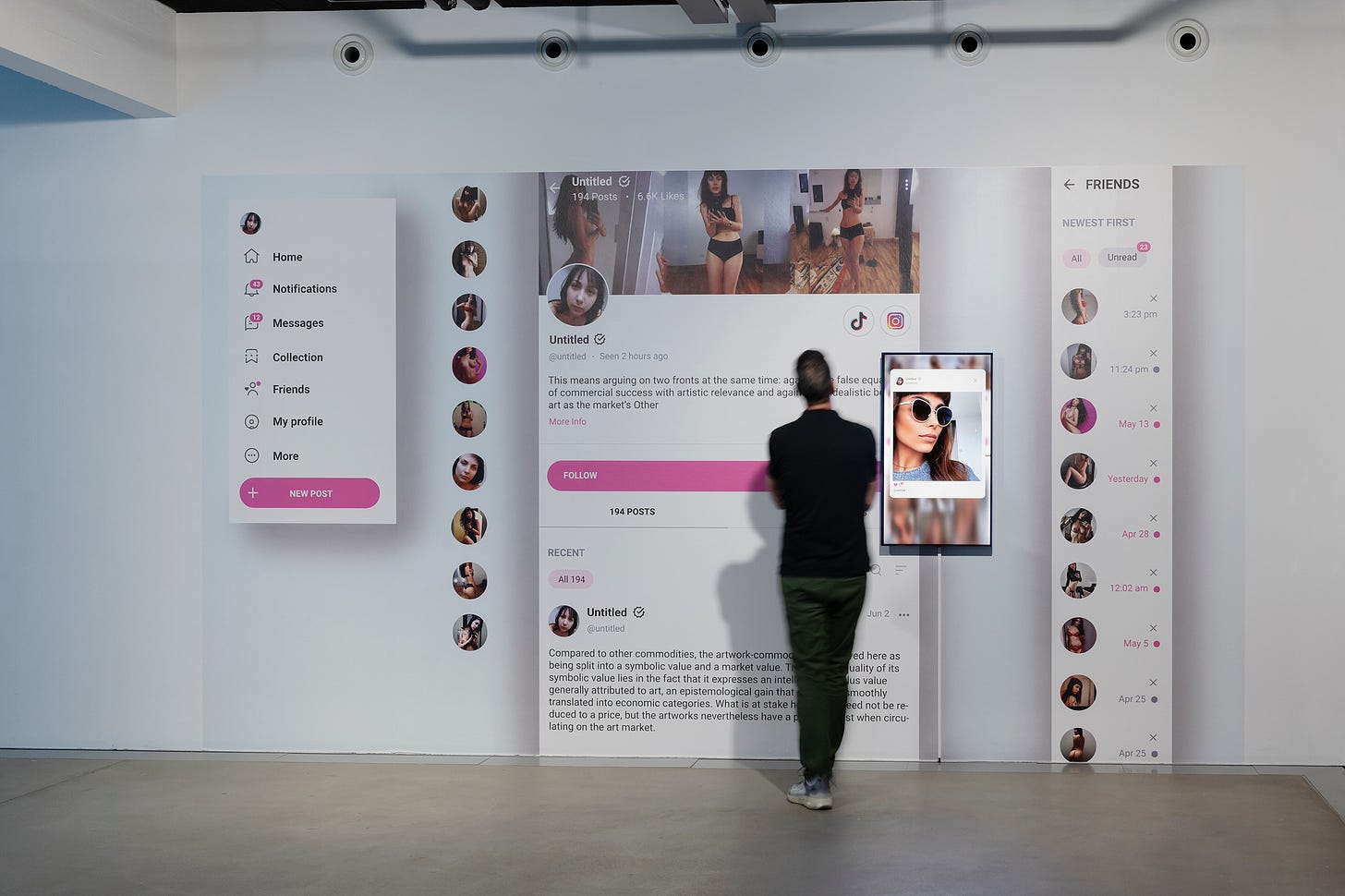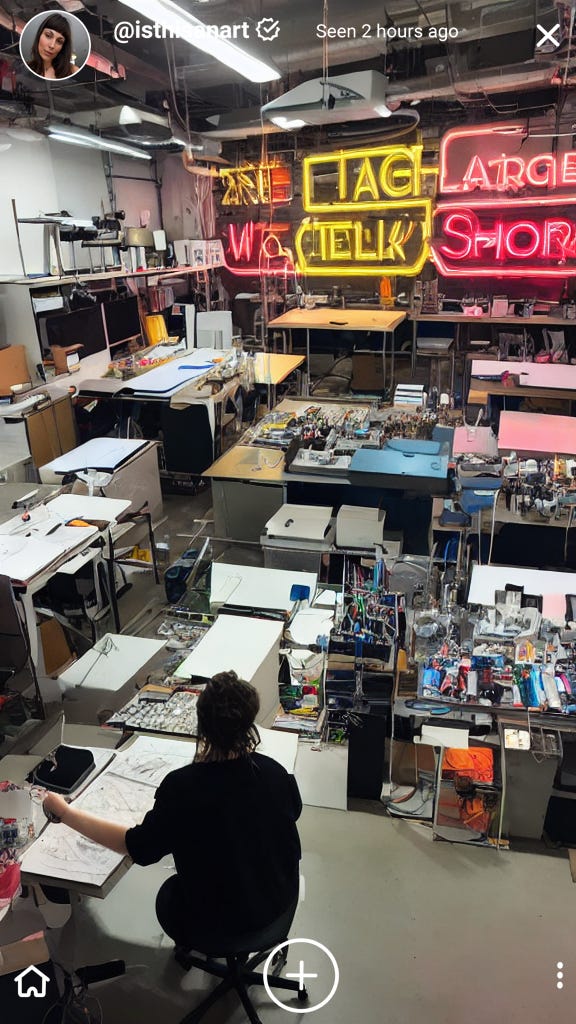Unit ⑧ Interviews: Sarah Friend
A conversation with Sarah Friend about the intersection of social relations, art, blockchain and AI technology.
We spoke with artist Sarah Friend about her practice. As an artist and self-taught software developer, she explores the intricate relationships between economics, blockchain technology, and digital art. Friend draws inspiration from her professional background to create art that interrogates systems, values, and the evolving nature of digital life. To read the full interview, follow the link to our blog post.
A Hybrid Perspective
Friend’s journey into the blockchain world stemmed from her desire to engage with transformative technologies. She found blockchain to be an industry that welcomed outsiders, and ever since, it has informed her artistic work, which frequently incorporates themes of economics and game theory as well, aiming to critique the mechanisms underpinning contemporary markets.
Experimentation with Blockchain and NFTs
For Friend, blockchain is a medium, a subject of critique and a foundation for her projects. She sees NFTs as inherently tied to market conditions and, thus, as a lens through which to examine the relationship between art and economics. Her project Lifeforms is NFT-based and resists typical market logic by fostering collaboration among collectors. Similarly, her earlier project Off featured hidden elements that could only be revealed through collective effort, emphasizing shared ownership and participation over individual commodification. Through her projects, the artist explores the potential of non-transferability, though such experiments cannot entirely escape the financial framework of blockchain technology.
Rethinking Digital Death
A significant theme in Friend’s work is the concept of "digital death." After Lifeforms, her research expanded to examine how societies define death, revealing a decentralized and asynchronous process of reaching consensus about when something ceases to exist. The "death" of a protocol is often determined by social and economic indicators, such as transaction volume or user activity, which parallels the human experience, where metrics like social interaction and institutional recognition play roles in defining life and death.

AI and the Question of Life
Regarding AI, Friend suggests that entities' perceived "aliveness" often depends on human belief and interaction. Drawing from history, notions of life and consciousness have evolved, pointing to times when humans and animals were excluded from definitions of "life" for ideological reasons. She contrasts the tendency to ascribe the ability to communicate verbally with intelligence, overlooking other forms.
Social Dimensions of Art and Technology
In one of her recent projects, Prompt Baby, she collaborates with users to create AI-generated artworks, emphasizing the human interactions underpinning the process. Friend moderates prompts manually, reinforcing the personal and relational aspects of the project. She draws parallels between her artistic practice and the dynamics of platforms like OnlyFans, where creators navigate an interplay of personal identity, digital labor, and market forces. The project reveals the centrality of concepts of authorship and ownership, as well as her interest in the ethical implications of AI and its potential to transform the relationship between creators and their audiences.
Expanding Artistic Ontologies
Friend’s work challenges the notion that financial systems must exploit resources or prioritize profit, proposing instead that alternative models can foster collaboration and shared ownership. Her explorations call for a more inclusive understanding of what it means to "live" in a digital age and frequently engage with the materiality and context of digital technologies. She ultimately believes in the importance of site-specificity, even in virtual spaces.
Towards New Understandings
Friend’s work consistently challenges audiences to question the systems they take for granted. By blending artistic creativity with technical expertise, she opens new avenues for dialogue about the role of art in shaping social relationships with technology. She ultimately continues to explore the interplay of economics, identity, and digital interaction, reflecting her belief in the transformative potential of art to critique and reimagine the systems that govern our lives. And, ultimately, looking for the heart behind the technology.
Follow this link if you want to read the full version of the interview.
Sarah Friend is an artist and software developer from Canada and currently based in Berlin, Germany. In 2023, she was a research fellow at Summer of Protocols, led by Venkatesh Rao and the Ethereum Foundation, and in 2022, she was a professor of blockchain art at the Cooper Union. She is an alumni in the Berlin Program for Artists, a founder and co-curator of Ender Gallery, an artist residency taking place inside the game Minecraft, and an organiser of Our Networks, a conference on all aspects of the distributed web.
Recent solo exhibitions include Off: Endgame, curated by Rhizome, Refraction and Fingerprints at Public Works Administration, New York, USA and Terraforming at Galerie Nagel Draxler in Berlin, Germany.
She is on the advisory board and was formerly the smart contract lead for Circles UBI, a blockchain-based community currency that aims to lead to a more equal distribution of wealth. She was also the technical lead for Culturestake, a project that uses quadratic voting to lead to better decisions about arts funding. She is a co-founder of bitspossessed, a software development consultancy that operates as a coop.
She has exhibited at and worked with MoMA (NYC), Centre Pompidou (Metz), Kunsthaus Zürich, HEK (Basel), Haus der Kunst (Munich), ArtScience Museum (Singapore), bitforms (NYC), Albright Knox Museum (Buffalo), Rhizome (NYC) and KW Institute for Contemporary Art (Berlin) among others.






